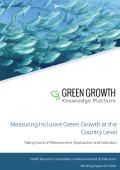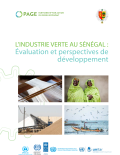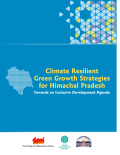
Himachal Pradesh is a mountain state in India which benefits from a wealth of natural resources but is also ecologically fragile, being situated in the Himalayan region. With climate change, socio-economic and ecological vulnerability has increased and risk-based approaches have become even more relevant. Green growth and sustainable development need to take into account the impacts of climate variability to strengthen policy interventions.
This report carries out an analysis aimed to build knowledge in this area. It uses a mix of analytical tools including a climate model, soil and water assessment, and energy analysis. The report finds that the overall climatic warming projected for the state of Himachal Pradesh in the near future increase by 1.3–1.9°C for 2021–50 relative to 1971–2000. Through a state-specific energy model and onground case studies, the report identifies important issues and pressure points, relevant for the energy and environment sectors.
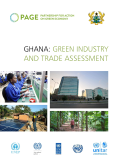
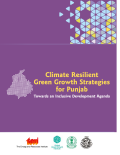
Punjab is a small Indian state that contributes significantly to India’s food security. While the production potential of rice and wheat crops have almost been fully exploited, there is now a stagnation in the growth process, decline in real farm incomes, and over exploitation of natural resources vis-a-vis soil health and water quality and quantity. With climate change, socio-economic and ecological vulnerability has increased and risk-based approaches have become even more relevant. Green growth and sustainable development need to take into account the impacts of climate variability to strengthen policy interventions.
